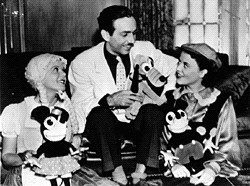Wednesday, November 21. 2007
Creative Mix-and-Match Re-Use Is Not What Open Access Is About
EnablingOpenScholarship (EOS)
Quicksearch
Materials You Are Invited To Use To Promote OA Self-Archiving:
Videos:
audio WOS
Wizards of OA -
audio U Indiana
Scientometrics -
The American Scientist Open Access Forum has been chronicling and often directing the course of progress in providing Open Access to Universities' Peer-Reviewed Research Articles since its inception in the US in 1998 by the American Scientist, published by the Sigma Xi Society.
The American Scientist Open Access Forum has been chronicling and often directing the course of progress in providing Open Access to Universities' Peer-Reviewed Research Articles since its inception in the US in 1998 by the American Scientist, published by the Sigma Xi Society.
The Forum is largely for policy-makers at universities, research institutions and research funding agencies worldwide who are interested in institutional Open Acess Provision policy. (It is not a general discussion group for serials, pricing or publishing issues: it is specifically focussed on institutional Open Acess policy.)
You can sign on to the Forum here.
Archives
Calendar
Categories
Blog Administration
Statistics
Last entry: 2018-09-14 13:27
1129 entries written
238 comments have been made



